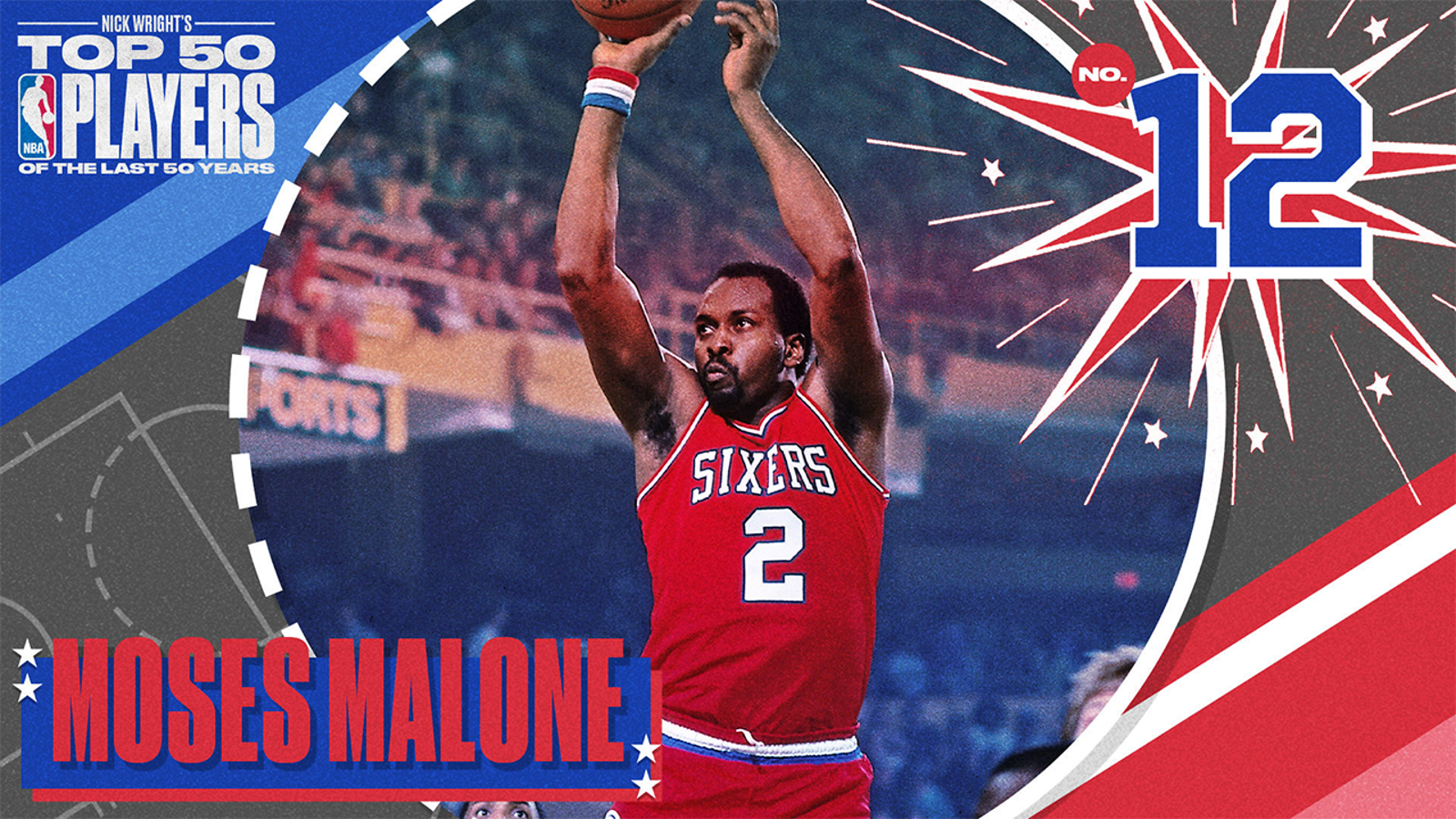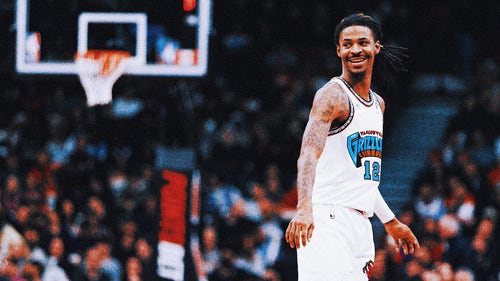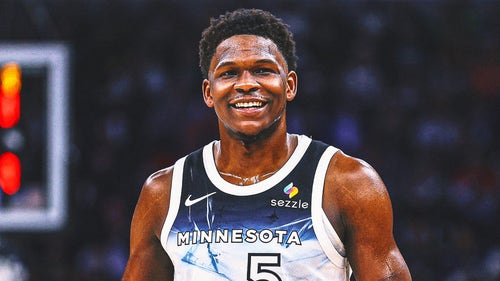
Top 50 NBA players from last 50 years: Moses Malone ranks No. 12
Editor's Note: As part of a new series for his podcast, "What’s Wright with Nick Wright," FOX Sports commentator Nick Wright is ranking the 50 best NBA players of the last 50 years. The countdown continues today with player No. 12, Moses Malone.
Moses Malone's career highlights:
- 1983 Finals MVP
- Three-time league MVP
- 12-time All-Star
- Four-time first-team All-NBA, four-time second team
- One-time All-Defensive first team, one-time second team
- Six-time rebounding champion
- 10th on all-time scoring list
- Fifth on all-time rebounding list
For nearly 30 years now, Moses Malone has slipped through the cracks of history much like he drifted through several franchises over the better part of two decades. Those two oddities are probably related.
They just don’t diminish Malone’s greatness.
"The inspiration for this project," Wright said. "You could argue, the most underrated player in the history of professional basketball."
Moses Malone is No. 12 on Nick Wright's Top 50 Players of the Last 50 Years
He’s undoubtedly one of the most accomplished.
If it seems like Malone was indistinctly crashing the boards, the reverberation was felt throughout the NBA forest. Nobody grabbed more rebounds in professional basketball over the last 50 years. He had 2,566 more offensive ones than anyone else.
That led to a ton of points. The 10th most in league history, in fact.
Malone wasn’t merely a compiler, however. He’s one of eight players to win three MVPs, and he did it while competing directly against three other members of the hallowed group. The Chairman of the Boards was also a winner, having fronted a dozen playoff teams for five different franchises.
But being a bit of a vagabond was part of the problem, as it concerns his legacy.
"While Moses Malone was traded quite a bit, he was one of the greatest players in league history. The three MVPs have to matter, the longevity has to matter," Wright said. "The reason I think he doesn’t get the long-term respect is because at the end of his career he bounced around the league so much."
Malone’s career also got off to an inauspicious (yet ultimately impactful) start. He signed a letter of intent with Maryland but reneged after being drafted by the ABA’s Utah Stars in 1974, becoming the first modern basketball player in the U.S. to turn pro out of high school.
He averaged 18.8 points and 14.6 rebounds as a 19-year-old rookie, a campaign he capped off with a 30-30 output in his third playoff game. When the Stars folded a few weeks into his second season, Malone’s rights were sold to the Spirits of St. Louis. In 1976, the young, skinny center found himself subject to another draft and was selected by Portland, who promptly traded him to Buffalo. Two games into that season, the Braves traded him to the Rockets.
Houston would become Malone’s first true home, as he broke the NBA record for offensive rebounds at just 21 years old. In the playoffs, he put up 31 and 26 against the Bullets’ Elvin Hayes and Wes Unseld and then 30 and 25 against the Sixers.
In 1981, the Rockets stunned the defending-champion Lakers behind Malone’s 31 and 18 marks in a best-of-three. It was part of a monster postseason run that saw him rip off 20 double-doubles in 21 games, average 27 and 15 in the process and outplay everyone in the Finals, albeit a six-game series loss to the Celtics.
He’d win his second MVP the following season but was traded soon after it to Philadelphia because new Rockets owners didn’t want to meet his contract demands.
The move paid immediate dividends for Philly, which coasted to the league’s best record in 1982-83 while Malone repeated as league MVP. Before the playoffs began, he predicted the Sixers would go "fo, fo, fo" in the ensuing rounds. They’d lose just once but sweep the defending-champion Lakers, with Malone claiming Finals MVP after averaging 26 and 18 in the series.
"Arguably the best player, certainly the Finals MVP, on arguably the best team ever," Wright said. "Some really good playoff success against one Kareem Abdul-Jabbar."
That marked the peak of Malone’s powers, though he’d continue to produce at a high level for another seven years. After an orbital fracture sidelined him for the 1986 playoffs, Philadelphia puzzlingly traded the legendary big man to the Bullets. He’d make three more All-Star teams, including one with the Hawks, but not get out of the first round again. His final three seasons were spent as a reserve with three different teams.
During a 12-year prime, Malone averaged 24 and 14. He went for 22 and 14 for his postseason career. Only Wilt Chamberlain recorded more double-doubles.
"If you were to ask me, who were the greatest players in the league, the guy to hold the belt, from [Bill] Russell’s rookie year to right now, at most 13 guys have held that title — best player in the league," Wright said. "Moses is one of those guys."











